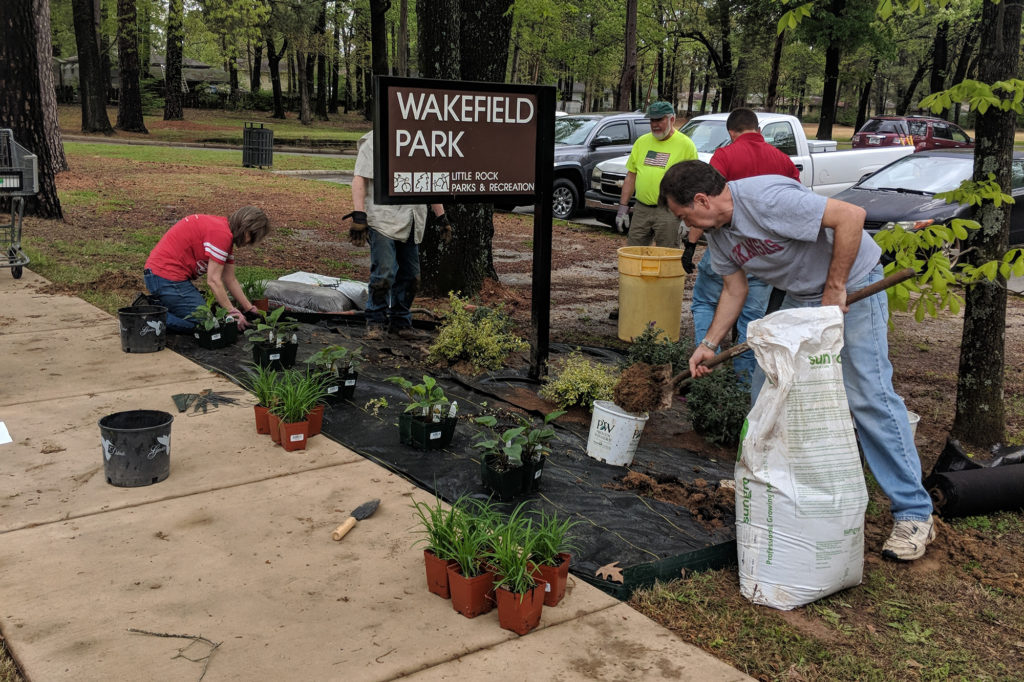
Fill in the blank: Pollinators are responsible for one in every __ bites of food.
That’s one of many weekly pollinator trivia questions that Casey Shepard, an environmental engineer at Arkansas Electric Cooperative Corp., posed to co-op staff leading up to National Pollinator Week.
The answer? Three.
“Aside from fruits and vegetables, there are nuts, jellies, salsas, coffee, chocolate,” said Shepard, ticking off the food products that require pollination by bees and butterflies to come to fruition.
“Pollinators are not only critically important to our food chain but also to our economy,” she added. “Pollinator products are responsible for $20 billion worth of revenue in the U.S. each year. They are pretty significant. But their populations are declining globally.”
Electric co-ops across the country have been developing better ways to protect the bees and butterflies—known as “pollinator programs.” These include pollinator gardens and projects on their campuses, along rights of way and intermingled with their solar energy farms. With the potential for the monarch butterfly to be listed as threatened or endangered next year, co-ops are stepping up their efforts to conserve pollinators.

Shepard, president of AECC’s new 14-member Cooperative Green Team, is helping spread the message through educational projects.
Co-op volunteers are cultivating a pollinator garden at a city park near the G&T in Little Rock. Small areas in rights-of-ways are being explored for other possible gardens.
Winners of the trivia questions received small peat pots and packets of Arkansas native wildflower seeds, including cone flowers and black-eyed Susans. A bee “condo” is on display in the headquarters’ lobby with free seed packets of milkweed—the sole food source for the caterpillars that turn into monarch butterflies.
“Cooperatives recognize how important these pollinators are and, with as many as 40 percent at risk of extinction, we are ramping up efforts to ensure their continued protection,” said Shepard.
National Pollinator Week takes place June 18-24. Find out more information on the Pollinator Partnership’s website.
Cathy Cash is a staff writer at NRECA.